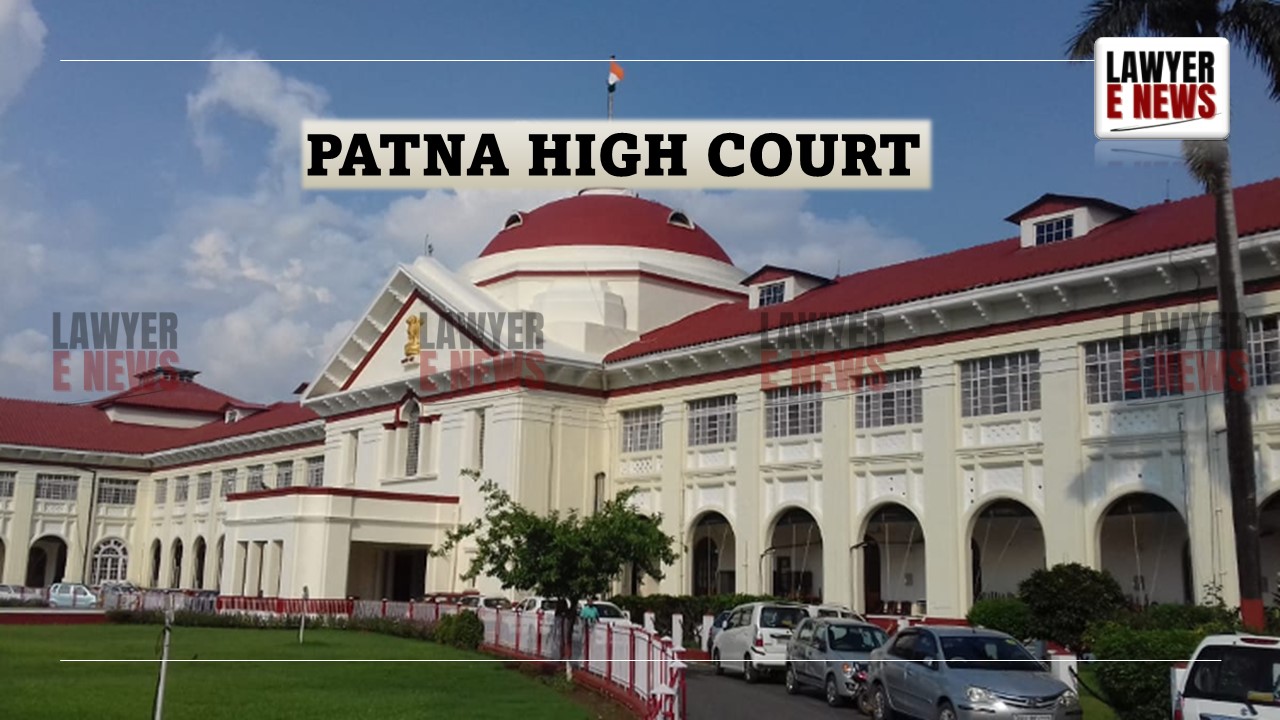-
by Admin
15 February 2026 5:35 AM



"The prosecution failed to establish the guilt of the accused beyond reasonable doubt due to unreliable testimonies, lack of corroboration, and procedural lapses," observed the Patna High Court while acquitting Munna Ravidas @ Munna Kumar in a case under Section 366A of the IPC.
Justice Ramesh Chand Malviya quashed the appellant's conviction and sentence, emphasizing the importance of consistent evidence, independent witness testimony, and adherence to procedural requirements in criminal cases.
"Unreliable Testimony of the Victim and Informant Undermines the Case"
The case arose from a complaint filed by the informant, Bindu Kumar (PW-2), alleging that the appellant had kidnapped his minor daughter, Priyanka Kumari (PW-1), on June 12, 2010, with the intention of marrying her. The trial court had convicted the appellant, sentencing him to five years of rigorous imprisonment and a fine of ₹1,000/-. However, the High Court, upon a detailed review of the evidence, found significant inconsistencies in the testimonies of key prosecution witnesses.
The victim (PW-1) claimed that the appellant forcibly took her from the school gate in broad daylight. However, her statement lacked corroboration. She testified that 100-200 people witnessed the incident, yet none intervened, and no independent witnesses were produced during the trial. Moreover, the medical evidence did not support allegations of force or violence, as there were no injuries on the victim's body.
Justice Malviya observed:
"The testimony of PW-1 is riddled with contradictions. Despite alleging forceful abduction in a crowded area, no independent witnesses have been examined. Such inconsistencies seriously weaken the prosecution's case."
Further, the informant (PW-2) admitted that he filed the FIR based on suspicion and did not personally know the appellant before the incident. The Court noted that the FIR appeared to be ante-dated since the informant only learned of the alleged incident a day after it supposedly occurred.
"Prosecution Failed to Prove the Victim’s Minority Beyond Reasonable Doubt"
The victim’s age played a crucial role in the case, as Section 366A IPC applies specifically to the procurement of a minor girl. The medical board formed to determine the victim’s age concluded that she was between 17 and 18 years old, with one doctor suggesting she could be older than 18. The Court emphasized that the prosecution failed to conclusively establish that the victim was a minor.
Justice Malviya noted:
"When the victim’s age is on the borderline of adulthood and no conclusive evidence is presented, the benefit of doubt must go to the accused. The prosecution cannot rely on speculation in such cases."
"Investigative Lapses Further Weaken the Prosecution's Case"
The Court highlighted critical shortcomings in the investigation. The investigating officer (PW-8) failed to record the statements of key witnesses, including school staff, students, or even the gatekeeper of the school, despite the alleged abduction taking place at the school gate. Attendance registers were not examined, and the police did not verify whether the victim had actually attended school on the day of the incident.
The Court remarked:
"The failure to examine critical witnesses or collect corroborative evidence raises serious doubts about the credibility of the investigation. Such lapses cannot be overlooked in a case where the evidence is already weak."
"Statements of Prosecution Witnesses Are Contradictory and Unreliable"
The victim’s testimony during the trial also contradicted her earlier statements. While she alleged that the appellant forcibly took her to his house and raped her, she later denied this during cross-examination. Additionally, the victim admitted that her statements to the police were influenced by her father and uncle.
The Court stated:
"When a victim’s testimony lacks consistency and is influenced by external factors, it cannot be the sole basis for conviction. The absence of corroboration and the inconsistencies in the statements render the prosecution’s case untrustworthy."
Judgment: Conviction Quashed, Appellant Acquitted
In light of the inconsistencies in witness testimonies, lack of corroborative evidence, and investigative lapses, the Court held that the prosecution failed to prove the charges under Section 366A IPC beyond a reasonable doubt.
Justice Malviya concluded:
"In criminal jurisprudence, it is a settled principle that the benefit of doubt must go to the accused. The material inconsistencies in the prosecution’s evidence, coupled with procedural failures, render the conviction unsustainable."
The Court set aside the judgment and sentence passed by the trial court, acquitted the appellant, and discharged him from his bail bonds.
This judgment underscores the fundamental principles of criminal justice, particularly the requirement to prove guilt beyond a reasonable doubt. It also highlights the importance of corroborative evidence, procedural diligence, and consistent witness testimony in ensuring fair trials.
Date of Decision: January 7, 2025
